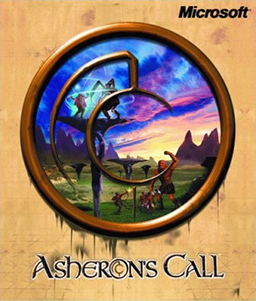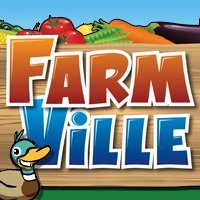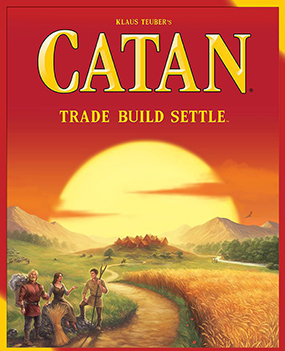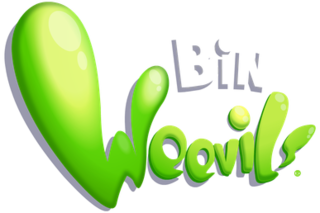A massively multiplayer online role-playing game (MMORPG) is a video game that combines aspects of a role-playing video game and a massively multiplayer online game.

Asheron's Call (AC) was a fantasy massively multiplayer online role-playing game (MMORPG) for Microsoft Windows PCs, developed and published by Turbine Entertainment Software. Though it was developed by the Turbine team, it was published as a Microsoft title until 2004. The game was set on the island continent of Dereth and several surrounding smaller islands and archipelagos on the fictional planet of Auberean. The game was played in a large seamless 3D virtual world which could host thousands of players' characters at a time.
A virtual economy is an emergent economy existing in a virtual world, usually exchanging virtual goods in the context of an online game, particularly in massively multiplayer online games (MMOs). People enter these virtual economies for recreation and entertainment rather than necessity, which means that virtual economies lack the aspects of a real economy that are not considered to be "fun". However, some people do interact with virtual economies for "real" economic benefit.

Gaia Online is an English-language, anime-themed social networking and forums-based website with Chibi-style animations. It was founded as go-gaia on February 18, 2003, by Derek Liu, Long Vo, Josh Gainsbrugh, and the name was changed to GaiaOnline.com in 2004 by its owner, Gaia Interactive. Gaia originally began as an anime linklist and eventually developed a small community, but following a statement by founder Derek Liu, the website moved towards social gaming and eventually became forum-based.

An online game is a video game that is either partially or primarily played through the Internet or any other computer network available. Online games are ubiquitous on modern gaming platforms, including PCs, consoles and mobile devices, and span many genres, including first-person shooters, strategy games, and massively multiplayer online role-playing games (MMORPG). In 2019, revenue in the online games segment reached $16.9 billion, with $4.2 billion generated by China and $3.5 billion in the United States. Since the 2010s, a common trend among online games has been to operate them as games as a service, using monetization schemes such as loot boxes and battle passes as purchasable items atop freely-offered games. Unlike purchased retail games, online games have the problem of not being permanently playable, as they require special servers in order to function.
Free-to-play video games are games that give players access to a significant portion of their content without paying or do not require paying to continue playing. Free-to-play is distinct from traditional commercial software, which requires a payment before using the game or service. It is also separate from freeware games, which are entirely costless. Free-to-play's model is sometimes derisively referred to as free-to-start due to not being entirely free. Free to play games have also been widely criticized as "pay-to-win"— that is, that players can generally pay to obtain competitive or power advantages over other players.
Gold farming is the practice of playing a massively multiplayer online game (MMO) to acquire in-game currency, later selling it for real-world money.
An escape room video game, also known as escape the room, room escape, or escape game, is a subgenre of point-and-click adventure game which requires a player to escape from imprisonment by exploiting their surroundings. The room usually consists of a locked door, objects to manipulate, and hidden clues or secret compartments. The player must use the objects to interact with other items in the room to reveal a way to escape. Escape the room games were born out of freeware browser games created in Adobe Flash, but have since become most popular as mobile games for iOS and Android. Some examples include Crimson Room, Viridian Room, MOTAS, and Droom. The popularity of these online games has led to the development of real-life escape rooms all around the world.

Audition Online, also known as X-BEAT in Japan and popularly called AyoDance in Indonesia, is a free-to-play multiplayer online casual Rhythm game produced by T3 Entertainment. It was originally released in South Korea in 2004 and has been localized by various publishers around the world. Audition Online is free to play, but earns revenue by selling virtual items such as clothes for the player's avatar.

Webkinz is a stuffed animal and video game franchise by the Canadian toy company Ganz. Webkinz stuffed animals have online counterparts in the video games Webkinz Classic and Webkinz Next. It was originally released by Ganz on April 15, 2005.
Microtransactions (mtx) is a business model where users can purchase in-game virtual goods with micropayments. Microtransactions are often used in free-to-play games to provide a revenue source for the developers. While microtransactions are a staple of the mobile app market, they are also seen on PC software such as Valve's Steam digital distribution platform, as well as console gaming.
Roblox is an online game platform and game creation system developed by Roblox Corporation that allows users to program and play games created by themselves or other users. Created by David Baszucki and Erik Cassel in 2004 and released in 2006, the platform hosts user-created games of multiple genres coded in the programming language Lua. For most of Roblox's history, it was relatively small, both as a platform and as a company. Roblox began to grow rapidly in the second half of the 2010s, and this growth has been accelerated by the COVID-19 pandemic.
Virtual goods are non-physical objects and money purchased for use in online communities or online games. Digital goods, on the other hand, may be a broader category including digital books, music, and movies. Virtual goods are intangible by definition.

League of Legends (LoL), commonly referred to as League, is a 2009 multiplayer online battle arena video game developed and published by Riot Games. Inspired by Defense of the Ancients, a custom map for Warcraft III, Riot's founders sought to develop a stand-alone game in the same genre. Since its release in October 2009, League has been free-to-play and is monetized through purchasable character customization. The game is available for Microsoft Windows and macOS.

FarmVille is a series of agriculture-simulation social network games developed and published by Zynga in 2009. It is similar to Happy Farm and Farm Town. Its gameplay involves various aspects of farmland management, such as plowing land, planting, growing, and harvesting crops, harvesting trees and raising livestock. The sequels FarmVille 2 and FarmVille 3 were released in September 2012 and November 2021, respectively.
ourWorld was a virtual world containing a range of online games and activities. It is developed by FlowPlay, and is aimed at the teen and tween demographic.

Catan, previously known as The Settlers of Catan or simply Settlers, is a multiplayer board game designed by Klaus Teuber. It was first published in 1995 in Germany by Franckh-Kosmos Verlag (Kosmos) as Die Siedler von Catan. Players take on the roles of settlers, each attempting to build and develop holdings while trading and acquiring resources. Players gain victory points as their settlements grow and the first to reach a set number of victory points, typically 10, wins. The game and its many expansions are also published by Catan Studio, Filosofia, GP, Inc., 999 Games, Κάισσα (Káissa), and Devir. Upon its release, The Settlers of Catan became one of the first Eurogames to achieve popularity outside Europe. As of 2020, more than 32 million copies in 40 languages had been sold.

Bin Weevils was a British MMORPG involving a virtual world containing a range of online games and activities.

Roll20 is a website consisting of a set of tools for playing tabletop role-playing games, also referred to as a virtual tabletop, which can be used as an aid to playing in person or remotely online. The site was launched in 2012 after a successful Kickstarter campaign. The platform's goal is to provide an authentic tabletop experience that does not try to turn the game into a video game, but instead aids the game master in providing immersive tools online. The blank slate nature of the platform makes integrating a multitude of tabletop role-playing games possible.
A digital tabletop game is a video game genre that includes video games that have gameplay similar to physical tabletop games, including board games, card games, and role-playing games. Many digital tabletop games are adaptions of existing physical games into the video games, though some of these are wholly digital games that use tabletop game mechanics. There are also tabletop game simulators that allow for users to recreate tabletop games from a variety of game pieces.









